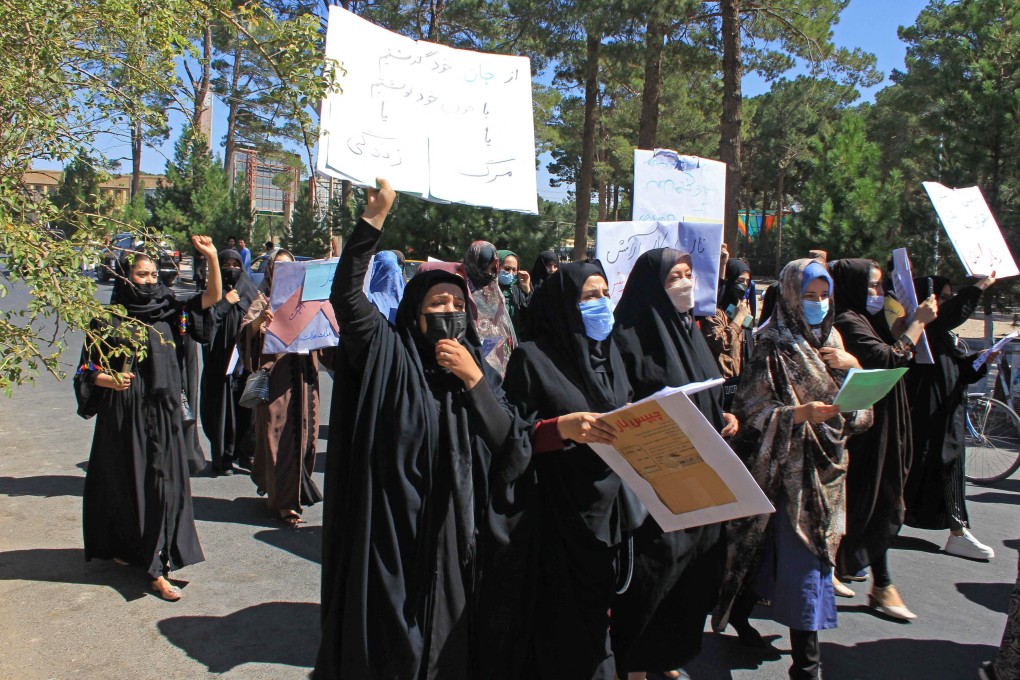Editorial | For Taliban to gain trust, it must protect the rights of women
- Vague promises do not allay fears; the group’s leaders have to ensure a continuation of hard-won freedoms

The Taliban is presenting a more moderate face to the world from when it repressively ruled Afghanistan from 1996 until a Western military invasion almost 20 years ago.
Preparing to announce a new government after again seizing power and the departure of American-led forces, the hardline Muslim group has vowed that women will be able to participate in society under the Islamic system it will impose.
But what that means has not been defined, prompting concerns that abilities to work and receive education and take part in public life as guaranteed by laws will be eroded or removed. Protecting those entitlements has to be a priority if the regime is to gain wide acceptance and the nation is to prosper.
There is understandable concern given accounts as the group imposes its rule. While girls have returned to school in Herat, the third-biggest city, they were initially barred as were women when they tried to go to work.

01:39
Women protest in Afghanistan for female representation in Taliban’s new cabinet
Elsewhere, there have been forced marriages with Taliban fighters. The burka, the head-to-toe covering mandated in the most conservative Muslim societies, has again replaced dresses and headscarves in some parts of the country.
